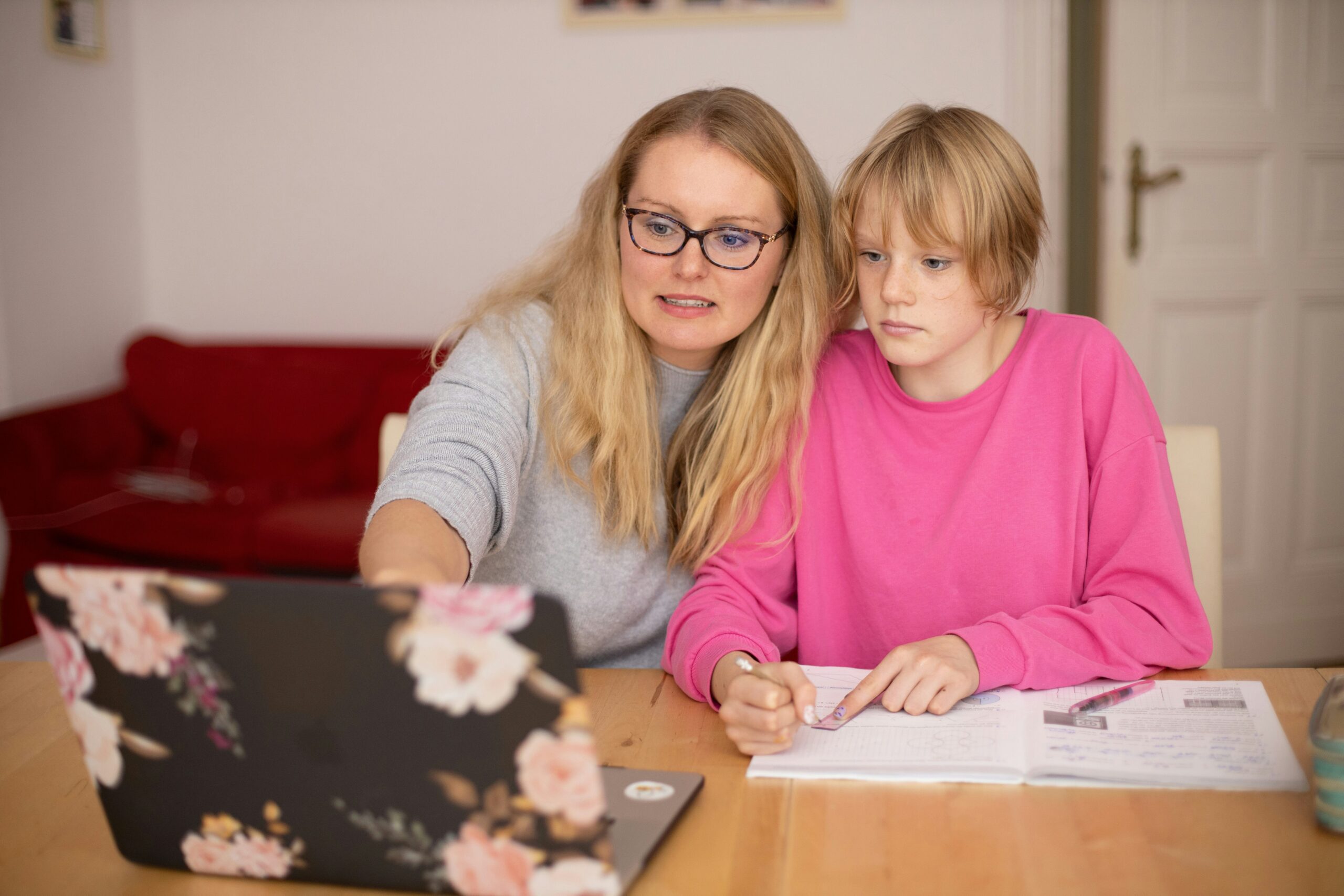Assessments
Our assessments support children and young people of all ages, from early years through to teenagers, helping each individual build the skills and confidence they need at their stage of life.
We use gold standard, evidence based assessment tools and gather information from home, school and other professionals to build a clear picture of your child’s strengths, challenges and day-to-day functioning.

What is an Occupational Therapy Assessment?
An Occupational Therapy assessment explores a child’s strengths and challenges in everyday, meaningful activities. It uses theory and evidence to understand how a child manages daily life, drawing on psychological, cognitive, behavioural, neurological, occupational science and sensory integration approaches. Standardised assessments are used to capture a clear picture of a child’s functional skills, participation and the areas where they may need support
Information is gathered from parents or carers, the education setting and other professionals to understand day to day functioning. The assessment identifies how a child engages with activities such as self care, play, school tasks and social participation. Following the assessment, you receive a high quality report that outlines strengths and challenges, overall functioning, assessment findings and tailored recommendations to support your child at home, school or both.
Choose from four levels of assessment which provide different levels of support. Press the plus icon to expand the assessment type and learn more about what is offered.
What is a Sensory Integration Assessment?
A sensory integration assessment forms part of every Occupational Therapy assessment.
The assessment explores how a child registers, modulates and responds to sensory information from all of the sensory systems, including touch, movement, body awareness, vision, hearing, taste, smell and internal body signals. Effective sensory integration supports a child’s ability to take part in everyday activities such as self care, play, social interaction and learning. When difficulties arise, they can affect a wide range of daily experiences, including sleeping, eating, tolerating personal care tasks, engaging in school activities and managing behaviour. Literature and neuroimaging show strong links between sensory integration challenges and functional performance in day to day life, which is why understanding a child’s sensory needs is an important first step.
During the assessment, therapists use gold standard tools and clinical observations to build a clear picture of a child’s strengths and challenges. Information is gathered from parents or carers, education staff and other professionals to understand how sensory processing affects daily participation and overall functioning. The therapist uses their specialist knowledge of the sensory systems to identify the underlying reasons a child may be struggling, and the assessment findings are brought together in a clear report that outlines strengths, challenges, day to day functioning and tailored recommendations.
Learn More About Our Bronze Assessment
Our Bronze Package offers a clear snapshot of your child’s current strengths and areas of development through a focused sensory assessment. This assessment lasts for approximately one hour and takes place either in our OT4me clinic or in the education setting, depending on your preference. It is ideal for families who would like an overview of sensory needs without the depth required for EHCP or tribunal purposes.
During the assessment, we gather information about how your child manages day to day tasks and how their sensory processing impacts their participation. Your therapist uses a basic sensory profile assessment to build an understanding of overall functioning and to identify where support may be needed at home or school.
Following the assessment, you will receive a short report outlining:
Strengths and challenges
Overall day to day functioning
Assessment findings
Recommendations tailored to home or school
Signposting to any further assessment or intervention needs
If you request the assessment to be completed in an education setting rather than the clinic, please note that additional travel charges may apply for locations outside the York ring road.
This package provides a simple and effective way to gain clarity about your child’s sensory needs while accessing expert advice from highly trained therapists.
Learn More About Our Silver Assessment
Our Silver Package provides a comprehensive assessment of your child’s occupational functioning, designed to give you a clear and detailed understanding of their strengths, challenges and everyday needs. This assessment takes up to two hours and includes analysis of your child in the environments most relevant to them.
Information is gathered from a range of sources, including parents or carers, education staff and other professionals involved. School assessment forms are also included to help build a complete picture.
Following the assessment, you will receive a detailed report outlining:
- Strengths and challenges
- Overall day to day functioning
- Assessment findings
- Clear, detailed recommendations
You will also receive a follow up discussion with your therapist and access to our training video package to help you get the most out of your report.
If required, this package can also include a full sensory integration assessment. This uses standardised assessment tools to assess sensory processing (if clinically appropriate), along with clinical observations. A dyspraxia assessment can be added at a reduced cost compared to a standalone assessment.
Learn More About Our Gold Assessment
Our Gold Package is designed for children with more complex needs who require a thorough, in depth assessment. This package provides a comprehensive evaluation of occupational functioning, taking up to three hours, and includes analysis of your child in the environments that matter most.
Information is gathered from multiple sources including parents or carers, the education setting and other professionals. A school visit and school assessment forms are included, helping us build a clear picture of how your child manages across their daily environments.
Your detailed report will include:
- Strengths and challenges
- Overall day to day functioning
- Assessment findings
- Clear and detailed recommendations
You will also receive a follow up telephone discussion with your therapist and access to our training video package to help you understand and use the recommendations effectively.
If required, this package can include a full sensory integration assessment, using standardised sensory processing tools (if clinically appropriate) along with clinical observations.
A clinic and school visit are completed on the same day. Please note that additional travel charges apply for locations outside the York ring road. Depending on distance, a home visit may be required instead of a clinic assessment.
Autism Diagnostic Services (Coming Soon)
We offer Dyspraxia diagnostic services for both children and adults, providing a clear understanding of how Dyspraxia affects coordination, planning, organisation, and everyday life.
The Dyspraxia (Developmental Co-ordination Disorder) Assessment provides a clear and comprehensive understanding of a child’s movement, coordination and day to day functioning. The assessment explores motor skills, sensory processing and the child’s presentation across relevant environments, helping to determine whether they meet the criteria for dyspraxia.
The process includes gathering information from parents or carers, education settings and other professionals involved, along with liaison with the GP or Paediatrician when required. This ensures a full and accurate picture of the child’s needs.
This assessment includes:
- Comprehensive assessment of movement (up to 2 hours)
- Analysis of the individual in relevant environments
- Information gathered from parents or carers, the educational setting and other professionals
- Liaison with other professionals such as the GP or Paediatrician
- Clear indication if the child meets dyspraxia criteria
The detailed report includes:
- Strengths and challenges
- Overall day to day functioning
- Assessment findings
- Detailed recommendations
Additional support:
- Follow up telephone discussion with your therapist
- Training video package
Dyspraxia (Developmental Coordination Disorder) Assessments
We offer Dyspraxia diagnostic services for both children and adults, providing a clear understanding of how Dyspraxia affects coordination, planning, organisation, and everyday life.
The Dyspraxia (Developmental Co-ordination Disorder) Assessment provides a clear and comprehensive understanding of a child’s movement, coordination and day to day functioning. The assessment explores motor skills, sensory processing and the child’s presentation across relevant environments, helping to determine whether they meet the criteria for dyspraxia.
The process includes gathering information from parents or carers, education settings and other professionals involved, along with liaison with the GP or Paediatrician when required. This ensures a full and accurate picture of the child’s needs.
This assessment includes:
- Comprehensive assessment of movement (up to 2 hours)
- Analysis of the individual in relevant environments
- Information gathered from parents or carers, the educational setting and other professionals
- Liaison with other professionals such as the GP or Paediatrician
- Clear indication if the child meets dyspraxia criteria
The detailed report includes:
- Strengths and challenges
- Overall day to day functioning
- Assessment findings
- Detailed recommendations
Additional support:
- Follow up telephone discussion with your therapist
- Training video package
What is an EHCP?
An Education, Health and Care Plan (EHCP) is a legally binding document that sets out a child or young person’s special educational needs and the support they must receive to learn, participate and make progress. It brings together educational, health and social care requirements into one coordinated plan, ensuring that the right provision is identified and delivered. EHCPs are designed for children and young people aged 0 to 25 who need more support than their setting can provide through ordinarily available provision. They outline the individual’s needs, their strengths, the outcomes they are working towards and the specific, quantified support required to help them achieve those outcomes.
What is an EHCP Assessment?
OT4me provides a comprehensive assessment and support service for children and young people who have an Education, Health and Care Plan (EHCP) or who are in the process of applying for one. Our role is to deliver fully independent, evidence-based occupational therapy assessments that identify strengths, challenges and the support required for a child to achieve their potential. All recommendations are based on the child’s needs, not local resources, and are suitable for inclusion in Sections B and F of an EHCP.
Our therapists complete detailed assessments across home, school and clinic environments, using gold-standard occupational therapy and sensory integration tools. We liaise with parents, carers, education settings and other professionals to ensure we build a complete picture of day to day functioning. EHCP-ready reports are clear, highly detailed and include specific, measurable recommendations, written in line with tribunal expectations where required.
What Our EHCP Assessment Includes
- Comprehensive assessment of occupational functioning, taking up to 3 hours
- Analysis of the child in relevant environments
- School visit and school assessment forms
- Information gathering from parents/carers, education staff and other professionals
- A detailed report outlining strengths and challenges, overall day-to-day functioning, assessment findings and detailed recommendations
- Follow-up telephone discussion with the therapist
- Training video package
- Full sensory integration assessment if required (standardised sensory processing tools plus clinical observations)
- Dyspraxia assessment if required
- Formatting of the report so that it is EHCP-ready, including specific provision recommendations
- Objective and unbiased reporting, as required for legal EHCP documentation
Book a free 30-minute call with an OT
We offer a completely free 30-minute call with one of our occupational therapists to discuss how we may be able to help you.
Client Testimonials
Hear from our customers, some of which have been with us for many years.



We are rated 5-star on Google
3 simple steps to get started
Step 1: Book a free call with an OT
Your first step is simple: book a free 30-minute call with an occupational therapist to talk about your child's needs.
Step 2: Personalised therapy plan
We listen to your concerns, complete assessments where needed, and design a tailored plan of therapy sessions and strategies for home and school.
Step 3: Progress you can see
Watch your child grow in confidence, independence, and regulation - while you feel supported with clear tools, guidance, and hope for the future.
Our Clinics
OT4me has two convenient locations – Our Headquarters is located in Bishopthorpe and we have a satellite clinic located in Derwent.
OT4me Bishopthorpe
OT4me Derwent
FAQs
1. What issues do you commonly help with?
At OT4me, we support babies, toddlers, children, teens, and young adults who need extra help to overcome barriers and reach their full potential. Many of the children we work with experience burnout, mental health challenges, school non-attendance, sensory processing difficulties, or developmental differences.
We provide comprehensive, tailored assessments and therapy, delivered in our clinic, at home, in preschool or school settings, or through group sessions. Our aim is to help each child build confidence, develop independence, and achieve their goals, creating opportunities that have a lasting impact.
We also focus on helping children become school ready, ensuring they have the emotional, social, and practical foundations to succeed in education and daily life. Families and professionals benefit from our training sessions, which cover topics such as sensory integration awareness, play development, and readiness for school, empowering them to provide effective support.
2. How does OT4me differ from the NHS?
The NHS provides excellent free resources and advice, but families often face long waiting lists and limited hands-on support. At OT4me, we offer more than fast access. We provide a personalised, hands-on approach designed to empower each child’s unique strengths, help them overcome barriers, and build long-term confidence and independence.
You benefit from:
Assessments within 4–6 weeks (not months)
A practical, tailored treatment plan for your child
Specialist expertise in sensory integration, mental health, trauma, and attachment work
Evidence-based practice, applying the latest emerging research
Specialist OT groups in areas such as social participation and feeding support
Ongoing family support through therapeutic parent coaching
Access to our free monthly Ask the Expert groups, where parents and carers can learn and ask questions
Clinical leadership, including co-facilitation of Mental Health & Sensory Training Workshops with ASI WISE, an internationally recognised UK training provider of Ayres Sensory Integration®
3. What does the journey from assessment to discharge look like?
Our structured pathway typically spans 6–8 months, creating opportunities for lasting progress and independence. It may include:
A comprehensive assessment of your child’s needs, strengths, and environment
Tailored treatment such as sensory integration therapy, interoception training, handwriting support, sleep strategies, positive behaviour approaches, Sensory Attachment Intervention, aquatic therapy, Theraplay, environmental audits, and more
Specialist OT groups focusing on social participation and feeding skills
Therapeutic parent coaching, giving you practical tools to support progress at home
Regular reviews to ensure strategies are embedded in daily life, building confidence, independence, and long-term outcomes
4. Why is OT4me considered a worthwhile investment?
Families choose OT4me because we offer more than short-term therapy. We provide specialist, evidence-based interventions that create lasting positive change:
Specialist services in sensory integration, mental health, trauma, and attachment work
Use of the latest research-informed approaches
Internationally recognised clinical leadership, with team members co-facilitating training through ASI WISE (a UK and international provider of Ayres Sensory Integration® training)
Support to help children become school ready, building the skills to thrive academically, socially, and emotionally
A holistic approach combining direct therapy, group interventions, parent coaching, and school input
Free monthly Ask the Expert groups, giving families ongoing guidance and empowerment
This combination ensures every child receives care that celebrates their uniqueness, helps them overcome barriers, and builds the foundations for life-long confidence.
5. Do you offer continued support after diagnosis?
Yes. Beyond therapy, OT4me continues to support families with:
Hands-on post-diagnostic support, tailored for children, teenagers, and young adults
Therapeutic parent coaching, giving parents and carers practical strategies they can use every day
Free monthly Ask the Expert groups, covering sensory needs, emotional regulation, sleep, school strategies, and more
Support with Education, Health and Care Plans (EHCPs) and ongoing liaison with schools
Opportunities to join specialist OT groups, such as social participation and feeding, offering targeted, peer-supported progress
This continued support ensures children and young people gain confidence, operate more independently, and achieve positive long-term outcomes.
6. Do you work with local authorities, schools, or businesses?
Yes. In addition to supporting families directly, OT4me partners with professionals and organisations to create opportunities for children and young people to thrive in education and later in the workplace:
EHCP assessments, reports, and ongoing support to ensure children’s needs are clearly identified and met in education
Specialist occupational therapy for children and families post-adoption and within foster services, delivered as a registered Adoption Support Fund provider
Tailored assessments, therapy, and training delivered directly within schools and colleges through individual contracts with education providers
Sensory environment audits for businesses and workplaces, helping employers design inclusive spaces that promote wellbeing, focus, and productivity.
